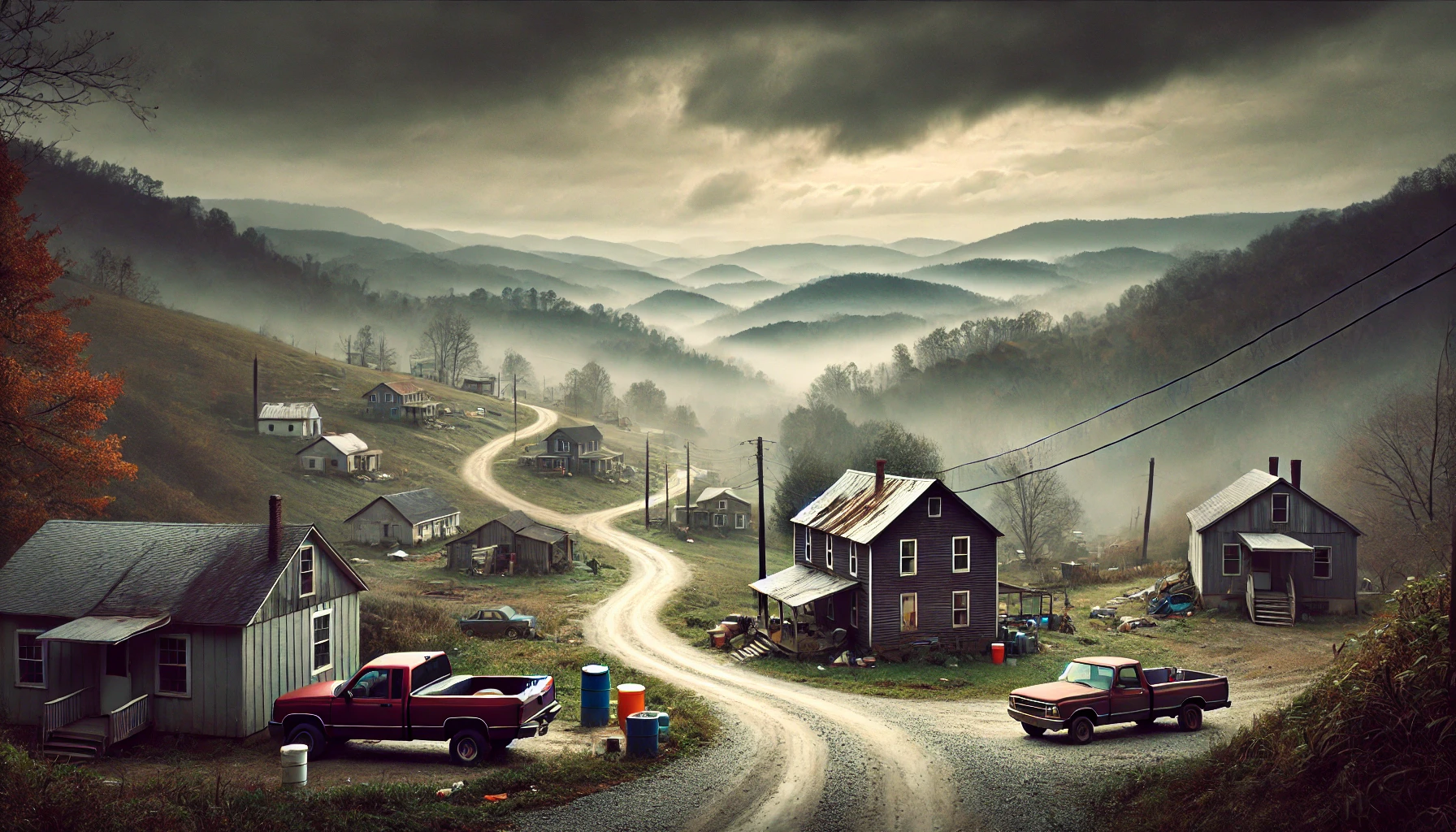
Introduction: Echoes of Dickens in the Heart of Appalachia
Barbara Kingsolver’s Demon Copperhead is a novel that reverberates with the echoes of Charles Dickens, but it does so with a voice and spirit that is distinctly its own. Set against the backdrop of modern-day Appalachia, Kingsolver’s tale of survival, resilience, and identity draws from David Copperfield to weave a narrative that speaks powerfully to our times. In this novel, Kingsolver takes us deep into the complexities of rural America, painting a picture that is both unflinchingly harsh and profoundly humane.

A Contemporary David Copperfield
Kingsolver’s protagonist, Damon Fields—better known as Demon Copperhead—invites readers into a life that is as raw as it is compelling. From the novel’s opening lines, “First, I got myself born,” Demon’s voice is unmistakably poignant, reflecting a life that is both predestined and desperate to forge its own path. Much like Dickens’ David Copperfield, Demon is an orphan, navigating a world that seems determined to break him. However, where Dickens’ London was a backdrop of industrial squalor, Kingsolver’s Appalachia is a land plagued by poverty, addiction, and neglect.
Comparing to Other Works: Dickens, Vance, and Beyond
The parallels between Demon Copperhead and Dickens’ David Copperfield are clear, yet Kingsolver’s novel also stands in stark contrast to works like J.D. Vance’s Hillbilly Elegy. While Vance’s memoir has been criticized for its depiction of Appalachian culture, often seen as lacking nuance and empathy, Kingsolver’s portrayal is rooted in a deep understanding of the region’s history, struggles, and resilience.
One striking difference is how Kingsolver addresses the opioid crisis—a contemporary blight on rural America. “You can hate the system, you can hate the pills, but you can’t hate the people,” Demon reflects, encapsulating the compassion that permeates the novel. Kingsolver refuses to simplify or moralize; instead, she presents a community that is both victim and survivor, shaped by forces beyond its control yet fiercely holding onto its dignity.
Critics’ Perspectives: Praise and Criticism
Demon Copperhead has garnered widespread acclaim for its vivid storytelling and social commentary. The New York Times praised Kingsolver for her “unflinching portrayal of a forgotten America,” while The Washington Post highlighted the novel’s “deep empathy for its characters.” However, not all feedback has been positive. Some critics, such as those from The Guardian, argue that the novel’s message occasionally overshadows its narrative, making it more of a social critique than a character-driven story.
Despite these criticisms, Demon Copperhead has struck a chord with many readers who see it as a necessary reflection on the current state of America. As one Goodreads reviewer noted, “This is a novel that doesn’t just tell a story—it demands that you listen, understand, and feel.”
Interesting Facts
Barbara Kingsolver’s Real Name and Biography
Barbara Kingsolver was born on April 8, 1955, in Annapolis, Maryland, but she grew up in rural Kentucky. Known for her works that often explore social and environmental issues, Kingsolver has become one of America’s most revered novelists. In addition to her literary career, she holds degrees in biology and has worked as a freelance science writer.
Family and Personal Life
Kingsolver lives with her family on a farm in southern Appalachia, where she continues to write and advocate for environmental sustainability.
Popular Works by Barbara Kingsolver
- The Poisonwood Bible (1998) – A novel set in the Belgian Congo, exploring themes of cultural imperialism and family dynamics.
- The Bean Trees (1988) – Kingsolver’s debut novel, which tells the story of a young woman’s journey to find a new life in the American Southwest.
- Flight Behavior (2012) – A novel dealing with climate change and its impact on a rural community.
- Animal, Vegetable, Miracle (2007) – A non-fiction account of Kingsolver’s family’s attempt to live a year eating only locally grown food.
Other Interesting Facts
- Kingsolver won the Pulitzer Prize for Fiction in 2000 for The Poisonwood Bible.
- She founded the Bellwether Prize, now known as the PEN/Bellwether Prize for Socially Engaged Fiction, which is awarded to a novel that addresses social justice issues.
Further Reading and Resources
- Demon Copperhead Official Book Trailer on YouTube
- Barbara Kingsolver discusses “Demon Copperhead” with NPR
- Comparison: “Demon Copperhead” and “Hillbilly Elegy” on Goodreads
- Charles Dickens’ “David Copperfield” on Project Gutenberg
- Explore the history and impact of the opioid crisis in Appalachia
Access the Book
Purchase or Read Online
- Amazon
- Barnes & Noble
- Bookshop.org
- Books-A-Million
- ThriftBooks
- Find it in a Library Near You: WorldCat
Free Version Online
